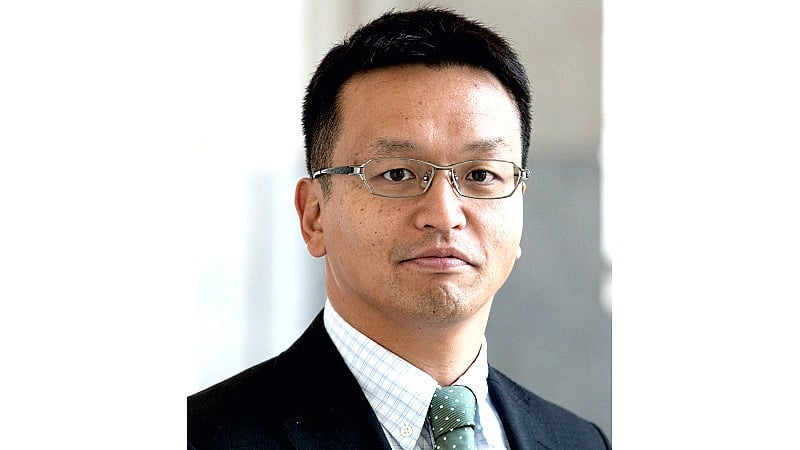
The situation in Ukraine is not regarded as a problem in someone else’s backyard by those living in Northeast Asia.
With Japan becoming increasingly vigilant at the prospect of a potential move by China to unify Taiwan by force, the impact of the situation in Ukraine on the North Korea situation cannot be ignored.
North Korea responded for the first time on February 26. A commentary on the situation in Ukraine by a named author was posted on the website of the Ministry of Foreign Affairs of DPRK, entitled “The U.S. Should Not Shake International Peace and Stability at the Basis.”
Expressing blanket support for Russia’s position, the author asserted that, “The root cause of the Ukrainian crisis also lies in the high-handedness and arbitrariness of the U.S. which has held on solely to the unilateral sanction and pressure while pursuing only global hegemony and military supremacy in disregard of the legitimate demand of Russia for its security.”
However, the commentary was published two days after the Ukraine invasion and was not an official statement of the Ministry of Foreign Affairs of DPRK but only the opinion of the scholar named as the author. After Pyongyang’s repeated denunciations of “imperialism,” there is a sense of bewilderment regarding the imperialistic behavior of Russia in its invasion of Ukraine.
North Korea and Ukraine had maintained diplomatic relations ever since the collapse of the Soviet Union, but relations deteriorated following North Korea’s acceptance of Russia’s annexation of Crimea, leading Ukraine to scrap the visa exemption agreement in 2016.
Despite the fact that Ukraine was at that time an important source of wheat for North Korea and its fifth-largest trading partner, North Korea’s pro-Russian stance on the annexation of Crimea showed that it valued its relations with Russia more highly.
North Korea has been reminded once again of the tyranny of major global powers. Pyongyang has previously revealed its wariness and strong denunciation of “American imperialism” in respect of the U.S. armed attacks on the Taliban administration of Afghanistan and the Hussein administration of Iraq, and of NATO’s intervention in the Gaddafi administration of Libya.
The Kim Jong-un administration cannot tar Russia with the brush of “imperialism” however since it is cooperating with China to ease economic sanctions against North Korea. In his policy speech on September 29, 2021 Kim Jong-un used the term “New Cold War” for the first time to denounce “the U.S. unilateral and prejudiced bloc-forming style external policy.”
From North Korea’s perspective, the composition of Northeast Asia has returned to the Cold War era thinking that divides the world into two competing blocs: the U.S., Japan, and South Korea versus China, Russia, and North Korea.
Of more serious concern is the possibility that North Korea will become even more obstinately intent on increasing its nuclear arms arsenal. In March 2013, Kim Jong-un referred to the abandonment of Libya’s nuclear weapons program with the collapse of Gaddafi’s system following NATO’s military intervention as a “lesson from the Middle East” and began to openly call for the need to acquire nuclear weapons.
Kim’s tone will only intensify. While North Korea already possesses a certain level of nuclear deterrent capability, it is observing the state of affairs in Ukraine as Russia advances and will consider further strengthening its missile defense system and conventional military forces.
The lack of action by the United Nations Security Council in response to the situation in Ukraine is bound to have signaled to North Korea that it has gained a free hand. North Korea’s launch of ballistic missiles is meant to be prohibited by a Security Council resolution.
Pyongyang has ignored that, however, and repeatedly conducted tests. With the latest situation in Ukraine, the Security Council was powerless to stop not only a missile launch test but a patent trampling on another country’s sovereignty and territory.
It is easy for North Korea to fall into the trap of thinking that even if it decides to take some drastic action in the future, there will be no repercussions as long as it has on its side China or Russia, which are permanent members of the Security Council. The key aspect to note here is that it would only need China or Russia, not both.
This means that were there to be a phase of conflict between China and Russia, as was the case with the Sino-Soviet split during the Cold War era, North Korea would not be affected. The Kim Jong-un administration’s support of Xi Jinping’s position in both the Hong Kong issue and the Uighur issue may bear fruit at some time in the future.
The impact of the situation in Ukraine will extend to the overall situation around North Korea. Once again, the world has recognized the difficulty of resolving issues through diplomacy when dealing with a nation that possesses a strong will to change the status quo, even by force, such as Russia.
Japan has been growing extremely distrustful of North Korea in its handling of the abduction issue, and the situation in Ukraine has triggered concerns that the argument that maintaining a diplomatic approach with a partner such as North Korea is meaningless may gain momentum.
No matter how difficult the adversary may be, without dialogue the abduction issue will remain unresolved and North Korea will simply keep advancing its nuclear and missile development program.
Three years have passed since Trump and Kim Jong-un ended their summit without a deal in Hanoi. It is highly regrettable that any hopes for the “denuclearization” and the “establishment of a lasting and stable peace regime on the Korean Peninsula” agreed upon in Singapore have receded into the distance.
(Atsuhito Isozaki is Professor at Keio University, Japan.)
ADVERTISEMENT
ADVERTISEMENT








































